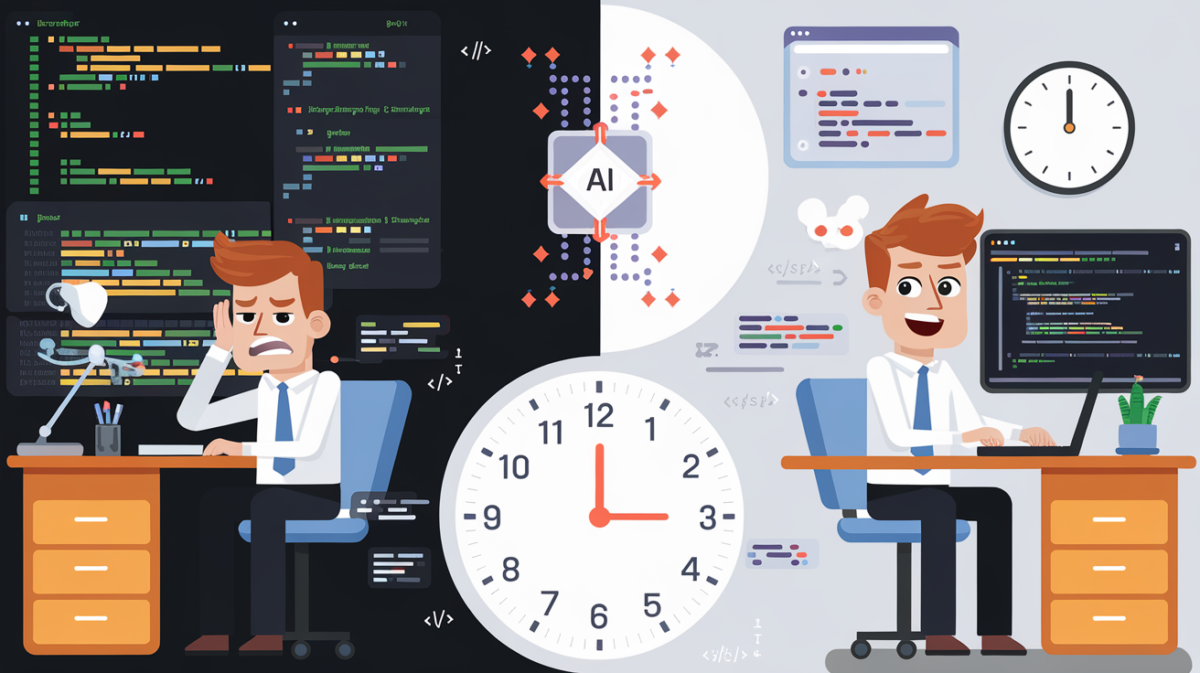In a surprising twist, a recent study has revealed that artificial intelligence (AI) tools, often touted as productivity boosters for software developers, may actually slow down experienced coders. The research, conducted by the nonprofit organization METR, found that seasoned developers took 20% longer to complete tasks when using AI assistance—contrary to their initial expectations of a 24% speedup.
The Study: AI’s Unexpected Slowdown
The METR study focused on 16 experienced developers working on 246 tasks across well-established open-source projects. The goal was to measure the impact of AI tools on productivity, particularly in refining or extending complex systems. The results were striking:
- Initial Expectations: Developers anticipated AI would save them nearly a quarter of their time.
- Reality: Tasks took 19% longer with AI assistance.
- Primary Reasons: AI’s imperfect understanding of developer intent led to time-consuming corrections, and the process of generating AI outputs often distracted developers.
This challenges the widespread assumption that AI universally accelerates coding workflows, especially for those working on intricate, pre-existing codebases.
Contrasting Findings: When AI Does Help
Not all studies paint a bleak picture of AI’s role in development. A separate report by Atlassian found that generative AI tools significantly improved productivity for many developers:
- Time Savings: 68% of developers saved over 10 hours per week, up from 46% the previous year.
- Benefits: Freed-up time was often reinvested into improving code quality or developing new features.
However, the same study highlighted persistent inefficiencies:
- 50% of developers lost over 10 hours weekly searching for information.
- 90% wasted up to 6 hours due to fragmented workflows and poor collaboration.
Why the Discrepancy?
The contrasting results underscore the nuanced impact of AI on developer productivity. Key factors influencing its effectiveness include:
| Factor | Impact on AI’s Effectiveness |
|---|---|
| Task Complexity | AI excels in simpler, repetitive tasks but struggles with complex, nuanced coding. |
| Developer Experience | Seasoned developers may find AI suggestions redundant or incorrect, requiring extra review time. |
| Codebase Nature | AI performs better in new projects but falters in maintaining or extending legacy systems. |
Implications for the Future of AI in Coding
The mixed results suggest that AI’s role in software development is far from straightforward. While it holds promise for certain scenarios—such as automating repetitive tasks or aiding junior developers—its benefits diminish in complex, high-stakes environments.
For companies and developers, the takeaway is clear: AI tools should be adopted selectively, with a critical eye on their suitability for specific tasks. Blind reliance on AI could inadvertently introduce inefficiencies, particularly for experienced teams working on mature projects.
Key Takeaways
- AI is not a one-size-fits-all solution: Its effectiveness varies widely depending on the context.
- Experienced developers may face slowdowns: AI’s limitations in understanding intent can lead to extra work.
- Productivity gains are possible: But they require careful integration and realistic expectations.
As AI continues to evolve, so too will its role in software development. For now, developers and organizations must weigh the potential benefits against the risks—ensuring that AI serves as a tool, not a hindrance.







